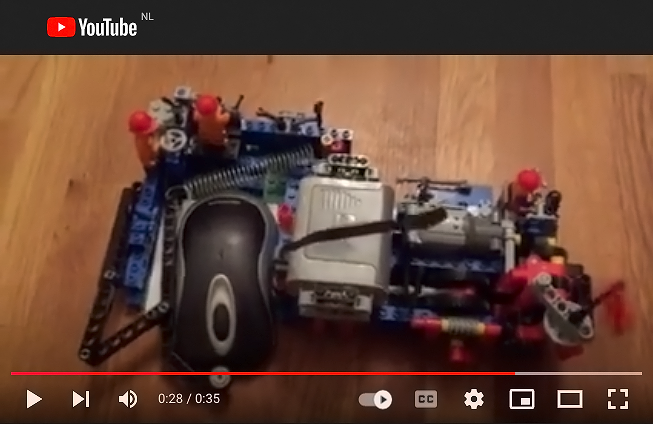

We haven’t tackled this topic in a while, and it’s timely — once again. We like to monitor the labor market at 360 degrees, and following the success of our article on how to set up your home office, we’d be delighted to share with you some more valuable tips. This time, it’s all about how to brilliantly get through an IT interview and address major non-technical questions.
During the past few years, right after Covid19, employees worldwide quit in droves. The specialists called it the Great Resignation or Big Quit. At the moment, the labor market is in a place where on the one hand, there is a large pool of talents available; on the other hand, this phenomenon has inevitably increased competition among job seekers who have to prepare themselves more than ever to secure a job. The media reports that in North America, 44% of the population (circa 10% more than in previous years) is currently looking for a new job. Europe & the UK count similar estimates, where the unemployment rate was at 6.0% in July 2022.
The first trick for being successful and managing to land a job interview is to create a flawless CV. For that, you can make use of our free tool. As a side note, we are preparing an in-person workshop in November 2022 in Amsterdam (the Netherlands). On that occasion, we will present our tool directly to our attendees and explain how to use the maximum potential of techmeout.io. We will announce the date on our social networks — so stay tuned ;)
Typically, a recruiter can review your CV and application for about one to two weeks. However, this time can vary depending on the position you are applying for, the number of applicants, and the size of the hiring company. If you pass the initial CV screening, you’ll be invited to the first interview. Sometimes hiring managers shall call you at your phone number directly or send you an e-mail to schedule an online or a face-to-face interview.
Typically, a structured interview (the one that is popular with major tech companies) contains three core categories of non-technical questions: behavioral, brainteaser, and quirky. Below is our best advice for answering tough interview questions. Note: these tips apply whether you are invited to a telephone, virtual, or IRL interview!

1) Tips for answering behavioral interview questions.
These questions are designed to get a glimpse into your past work-related behaviors. An example might be: “tell me about a time when you disagreed with your boss.”
Recruiters aim to understand essentially two things here:
- How do you handle conflicts and work pressure?
- What was your added value to the resolution of the conflict?
To answer these questions correctly, you need to successfully tell a story highlighting a quality or competency that you possess. For example, if you are being interviewed for a role in privacy/cybersecurity, a typical behavioral question could include: “What strategies would you utilize to maintain confidentiality when pressured by others?”. In this case, you should show off your leadership skills and adopt storytelling techniques to confidently share your experience with the interviewer. As you cannot possibly prepare for every single question that might be thrown your way during the interview, just focus on having two types of success stories ready to be shared. The first is a success story you should apply to most generic behavioral questions, where you should expect to hear questions about teamwork dynamics, problem-solving experiences, interpersonal skills, and challenge or stress-related questions. The second type of success story to prepare is one that relates specifically to the role and/or company you targeted. It goes without saying: do your homework to discover what essential qualities the hiring team seeks/values and craft your own story to highlight those. The formula we like to use is: wait at least 10 seconds before you answer; provide a concise description of the context/situation; what approach or skillset did you use; the positive results; and what you learned to do even better next time.

2) Tips for answering brainteaser interview questions.
These questions don’t have to land with real answers necessarily. Usually, they’re being asked to check your analytical skills and thinking process — hence: how you would handle a hypothetical scenario. For example, according to Elon Musk’s biography, he’s a huge fan of these types of questions. Many engineers who sat in front of him for an interview at Tesla or PayPal, or SpaceX, would be asked his favorite brain teaser interview question: “You’re standing on the surface of the earth. You walk one mile south, one mile west, and one mile north. You end up exactly where you started. Where are you?”. The North Pole is the most common answer. However, it appears that Musk is more interested in the argument behind the answer than the answer itself. To give you a bit more flavor of these types of questions, another brainteaser riddle that a tech hiring manager could ask you is, for example: “You’re standing outside a room with no windows. The room has three light bulbs and three switches outside the room. Each switch controls one of the light bulbs. You may only enter the room one time. How can you find out what switch goes to each light bulb?”. In both questions above, the interviewer is clearly trying to uncover your potential and enhance your critical thinking. Here, it is not as important to “nail it,” but to answer this question by explaining how you would work through the problem effectively and what bold solution would you bring to the issue. Break big problems into small ones, and don’t focus on the correct response — focus on the process. Is your thinking sound? Again, do take your time before jumping to conclusions. There is no harm in asking for time to reflect a bit longer. Actually, it demonstrates you possess good management and strategic skills!

3) Tips for answering quirky questions.
If you’re asked questions such as, “What type of animal would you be and why?” or “What is your superpower?”. Just have fun with your response and indulge your creativity. The hiring manager wants to understand your personality traits to determine whether you’ll fit into their company culture. We suggest answering each question in an authentic manner and without fear of giving the wrong answer. Usually, a quirky question is asked at the end of an interview or, in any case, weighted together with the rest of the answers given to other questions during the interview.

4) Tips for when it gets “personal.”
For recruiters, is it legal to ask about gaps in employment? Or Whether you have children or not? We don’t believe the question is about being legal, but here is some advice on how to answer (or not) those questions.
First of all, try to focus on how the recruiter asked that question. Did they make you feel uncomfortable, or did you think they just wanted to make a friendly conversation? In any case, from a candidate’s perspective, you should prepare yourself for the question. Here are some tips on how to answer (or not) the questions without getting nervous or sounding combative.
You can try to rephrase it and build your answer without directly answering the original question, like: “Maybe you are trying to ask if I’m focused on my work, and I can travel? Or If I’m ready to get a mid-long term commitment? I can tell you that I can contribute a lot ….”
You can also ask for additional details to understand the context, like: “This is an interesting question. Perhaps you can help me to understand why it might be so important in this interview?”. Which sounds better than “I’m sorry, why do you care if I’m a parent?”. In fact, our recommendation is always to manage the conversation diplomatically without coming across as confrontational or aggressive. You can accomplish much more.
Finally, pay attention to how the recruiter (or the hiring manager) drives the conversation. That can give you a taste of the company culture and its compatibility with yours.
Bonus Tip. CVs are already screened by applicant tracking programs (ATS), and we offered an overview of that in another article. Will the interviews of the future be done entirely through machine learning/artificial intelligence (AI)? We certainly cannot rule it out. In recent days we have often heard about new interview tools that simulate real job interviews, and we want to deepen the subject — specifically Google’s new Interview Warmup. In fact, recently, Google is making available an AI tool that allows users to speak to a sort of automated interviewer. Google’s Interview Warmup is able to ask you general questions, such as “tell me about yourself,” behavioral questions, such as “tell me about a time you failed to meet a deadline,” and even some technical questions about the job you’re seeking. The tool can record and transcribe your answers in real time. The tool analyzes your speech’s performance for repetitiveness, relevance, and other identifiable talking points, such as skills and experiences. Currently, the Google Interview Warmup is geared to helping people secure jobs in data analytics, eCommerce, project management, IT support, and UX design. Whether society is ready or not, AI is advancing in the job-seeking process — and has been for a while. Using this Google Interview Warmup might be a great way to get a leg up on the competition and prepare you for the future.







